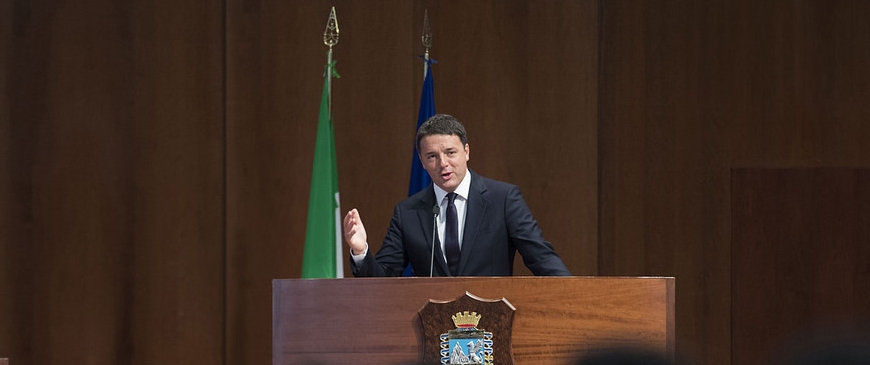
Italian constitutional referendum: Much ado about nothing?
After the victory of "Leave" in the EU referendum and Donald Trump’s election as US President, Italy seems to be lined up as the next domino to fall to populism, with a referendum on constitutional changes scheduled for 4th December.
Prime Minister Matteo Renzi has repeatedly said he will resign if voters say “No” to his reforms. If this happens, some observers inside and outside the country fear a new, and potentially more dangerous, phase of political instability in Italy. Renzi’s resignation could lead to new elections, and pave the way for a government led by the populist 5 Star Movement—a party highly critical of the EU, in favour of a referendum on Italy’s membership of the eurozone, and opposed to sanctions on Russia. Solving the still unaddressed banking crisis could become a lot harder, and the slow reform process and economic recovery might be choked off entirely. These fears are understandable but overblown.
The constitutional changes aim to streamline the legislative process and give more powers to the government and the lower house of parliament, turning the Senate from a directly elected upper house into a largely consultative body representing Italian cities and regions. The reform would also increase the powers of central government vis-à-vis regional and local authorities.
Supporters of the constitutional changes argue they will lead to a stronger executive based on more stable majorities in parliament, and that this will facilitate the economic reforms needed to boost growth, employment and eventually to reduce Italy’s public debt.
Current polls suggest voters are likely to reject the reform, with “No” ahead by 4-5 percentage points. For many, voting “No” is not a rejection of constitutional reform per se, but a way of expressing discontent with the government. But there are also others, including respected political figures such as former prime minister Mario Monti, who oppose the reform on substance. They argue that the executive would be given excessive powers if the Senate is reduced to an advisory chamber, and the largest party is handed a majority in the lower house. Critics also argue that the proposed division of competences between the Senate and the lower house and between the central government and the regions is unclear and could lead to turf wars.
The impact of a “No” vote on Italy’s political stability is likely to be contained. Renzi’s resignation would not automatically trigger new elections. The Italian president Sergio Mattarella would first explore options for a new government. He could even give Renzi a fresh mandate to form a new government—or, more likely, give a respected technocratic figure such as economics minister Pier Carlo Padoan the mandate to govern. The parties currently making up the governing coalition have a strong incentive to keep the legislature going and support the formation of a new government. Former prime minister Silvio Berlusconi’s Forza Italia, languishing at 10 per cent in the polls, also seems open to joining a broad coalition government, as the party has done in the past.
Mainstream parties fear elections because of the prospect of a strong showing by 5 Star—even more so after the Brexit vote and the election of Donald Trump. However, even if early elections were held, it is very unlikely that they would lead to a government led by the 5 Star Movement. The electoral laws for the lower house and the Senate prevent it. If the movement became the largest single party, it would be guaranteed 55 per cent of seats in the lower house but it would only win a third of seats in the Senate (in line with its projected share of the vote), which is elected under a standard proportional system. As a result, it would be unable to form a government, as Italian governments need the confidence of both houses.
If “No” wins the referendum and there are no early elections, a new government would steer the country towards elections in late 2017 or 2018. Even these are unlikely to lead to a 5 Star victory. Whether the reforms go through or not, Italy’s constitutional court is due to hear a case on the electoral law for the lower house, and is likely to demand changes to make the system more proportional. Such a system would make it even more difficult for a single party to win an outright majority, and would mean continued coalition governments, which the 5 Star Movement refuses to take part in.
Whatever the outcome, Italy’s referendum is not the watershed moment in Italian politics many are making it out to be. After 4th December, the current or new government will continue to pursue the stony path of incremental economic reform and steer the country towards new elections in late 2017 or 2018. At the same time, it will try to change European fiscal rules in its favour, and push for more expansionary fiscal policies at the European level.
Luigi Scazzieri is the Clara Marina O'Donnell fellow at the Centre for European Reform.
